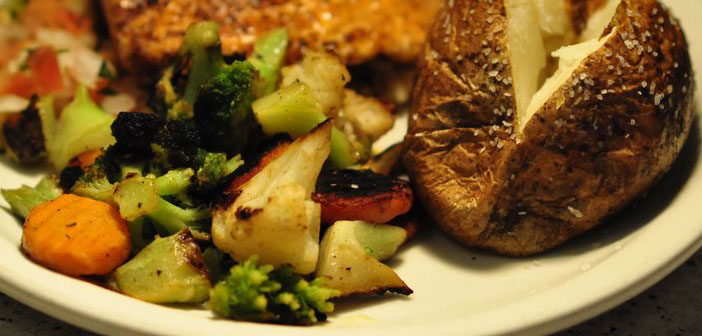Green Vegetable Diet
Health Benefits of Eating Vegetables
No Saturated Fats
Saturated fat contains triglycerides, which increases the levels of cholesterol in your body. This narrows down your arteries, preventing flow of oxygenated blood to the brain and heart. This makes one prone to several heart diseases and heart attacks. Thus, reducing your intake of dairy products will help mitigate health risks along with it. Meats, butter, cream and sweets are examples of saturated food items that need to be avoided. Replace these food items with vegetables, low fat milk and fruits. Using less cooking oil while making your meals will also help you to cut down you intake of saturated fat levels.
Antioxidants
Oxidants enter our body through the food we eat and lifestyle we lead. External factors such as pollution is also a cause of oxidants in the body. They are known to cause cell damage, which can lead to cancer, premature aging and weaken the immune system. Changing your diet to a vegetarian one helps you to restore antioxidants, which fight oxidants and make your body stronger. When an antioxidant neutralizes an oxidant, it loses an electron and stops acting as an antioxidant. Thus, a constant supply of antioxidants is essential to keep the body healthy.
High Fiber
Many take to a green vegetable diet to lose weight and lead a healthier life. If you are one of those, pay close attention. A healthy vegetarian diet increases your intake of fiber, which is an excellent way of shedding those extra pounds. Whole grains, fruits, vegetables, cereals and oats bring about a regular bowel movements. This in turn cleanses your system and enhances your metabolism rate. As a high fiber meal is difficult to digest, your body feels full very easily, thus discouraging you from eating more. All of this results in weight loss and radiant skin, as toxins are more regularly flushed out.
Essential Nutrients
Potassium, folate, vitamin E, vitamin C, magnesium, carbohydrates and proteins are all found in the right proportion in a vegetarian diet. A vegetable diet provides the body with all the essential nutrients, as compared to a protein rich meat diet. Eating raw vegetables, such as salads provide the body with minerals that are otherwise washed away while cooking. All these nutrients are extremely important to keep the body free from any toxins, strengthen the immune system and for effective functioning of all the organs.
For many, the thought of a vegetable diet is limited to bland tasteless food. However, with a variations of spices and condiments, vegetables can be made delicious. Also, eating freshly prepared vegetables is important for a healthy body. Change your diet slowly and gradually, instead of making a sudden change to a totally vegetarian diet. This can cause withdrawal symptoms and tempt you to indulge in binge eating at some point. Such a diet has to be supplemented with dairy products, if you have a very active lifestyle. Lastly, a vegetarian diet has to be combined with an exercise routine for a body as fit as a fiddle!
Related Articles
-
Raw Vegetable Diet
Eating healthy is a way to healthier life. Our health and normal body
-
Vitamin Supplements for Vegetarians
Vegetarian diets are gaining popularity. For several religious, health
-
High Protein Low Carb Diet for Vegetarians
High protein low carb diet for vegetarians is one of the most effectiv
-
Grilled Stuffed Portobello Mushrooms
-
Green Vegetable Diet
Many contemplate quitting meat and becoming vegetarians for various re
-
High Protein Foods for Vegetarians
Most people are of the belief that only meat-based foods are good sour
- DON'T MISS
- Grilled Stuffed Portobello Mushrooms
- High Protein Low Carb Diet for Vegetarians
- Curried Cauliflower and Potatoes
- Baked Potatoes with Vegetables
- Balanced Vegetarian Diet
- Summer Vegetable Saute
- Greek Chickpeas and Spinach
- Asian Veggie Wraps with Dipping Sauce
- Lacto Ovo Vegetarian Diet
- Zen Monk Diet



